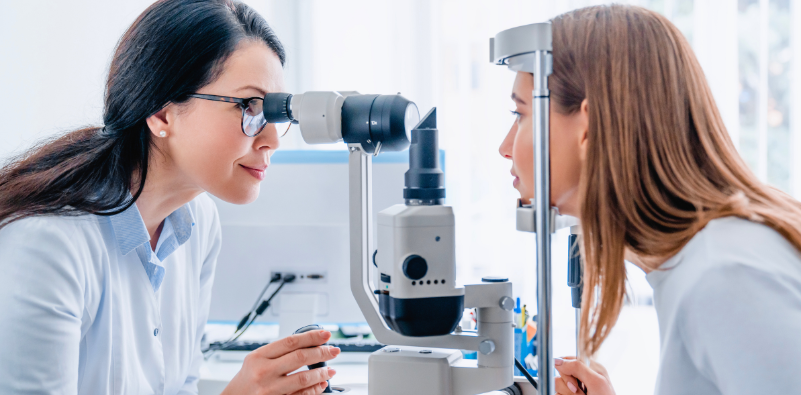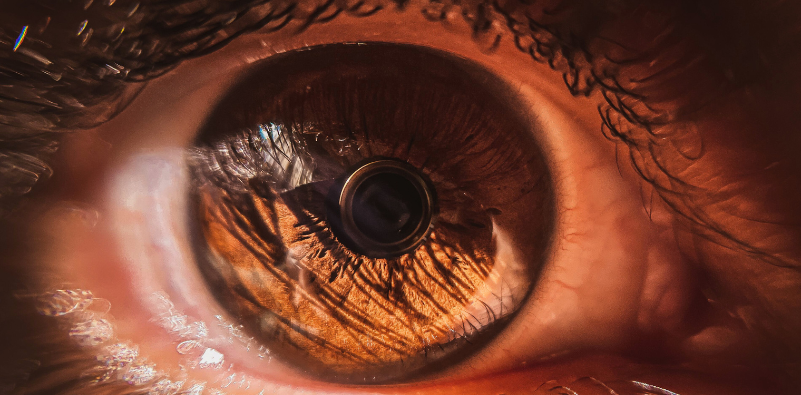Contact Lenses: Do's and Don'ts
Are you considering wearing contact lenses? For many, contacts offer the convenience of correcting vision without having to wear glasses. Wearing contact lenses also offers many advantages – they don’t get in the way while playing sports, they keep your face frame-free and you don’t need to worry about them getting dropped or sat on. With all these benefits it’s no surprise that so many choose contact lenses to correct their vision.
However, before making that transition, it's important for us to take a closer look and understand some of the do's and don'ts associated with contacts. In this post, we will be discussing what steps should be taken when beginning to use contacts as well as looking at some of the potential challenges with contact lenses. Whether you’re an old contact lens wearer who has questions about taking care of their lenses or if this is your first time trying out contacts, let us provide insights into all things related to proper use and safety for getting the most out of your contact lenses.
DOS
DO KEEP YOUR HANDS CLEAN
Hands can be covered in bacteria, so it is essential that, before putting contact lenses in or taking them out, you wash your hands. You should also make sure they are fully dry too before you handle your contact lenses.
DO REMOVE YOUR CONTACT LENSES BEFORE SLEEP
Unless advised otherwise, you should make every effort to remove your contact lenses before going to sleep. If you sleep in contacts, your risk of an eye infection increases significantly.
DO HAVE REGULAR AFTERCARE CHECKS
Even if your eyes feel fine, it is advisable to see your eyes doctor regularly. Sometimes contact-lens-related issues can be caught during a routine examination. This means that they will be able to be treated before they can cause a problem.
DO ALLOW YOUR EYES SOME CONTACT-FREE WAKING HOURS
You should keep a spare pair of glasses with you in case your contact lenses become uncomfortable throughout the day. Also, wearing your contacts for too long can lead to an eye infection, so it is advisable that you never leave contacts in longer than recommended.
DO REMOVE THE LENSES IF YOU ARE EXPERIENCING DISCOMFORT
If you are experiencing discomfort, this can be an early sign of an eye infection, so you should remove the contacts and make an appointment with your eye doctor. Also, it may also mean that your eyes are not adjusting to the contacts, or you haven’t inserted them properly, so it is a good idea to ‘re-set’ and take them out for a while.
DON'TS
DON’T SWIM IN THEM
Water, especially water in swimming pools, not only contains irritant chemicals but micro-organisms which can lead to serious eye infections. You should always take your contacts out before swimming.
DON’T USE TAP WATER TO CLEAN THEM OR TO PUT THEM IN YOUR EYES
Don’t use saliva or water to clean or wet your lenses at any time when applying them to your eyes. Both contain potentially harmful bacteria, and hygiene is crucial for safe application. Always use the solution provided.
DON’T ‘TOP OFF’ CONTACT LENS SOLUTION
Always use fresh contact lens solution when you’re storing your contacts overnight. Adding new solution to an old solution already in the case, or cleaning lenses with water has been linked to cases of Acanthamoeba keratitis, a rare but painful infection that's difficult to treat.
DON’T SHARE YOUR CONTACT LENSES WITH ANYONE
Sharing your contact lenses with someone else, friends or family, can lead to conjunctivitis, or ‘pink-eye’ infections. Also, contact lenses are prescribed on an individual basis – your contact lenses may be unsuitable for someone else to wear and can even cause them eye damage.
DON’T IGNORE THE SIGNS OF AN EYE INFECTION
If you experience redness, pain, blurred vision or light sensitivity and these signs persist over 24 hours, your eyes may need medical attention. If you experience severe symptoms, see an ophthalmologist immediately. When contact lens-related problems are treated promptly, they will not cause permanent eye damage or blindness.
If you would like to find out more about our range of contact lenses, CLICK HERE.
If you want to book an eye appointment, CLICK HERE to find your closest branch and book an appointment today!











